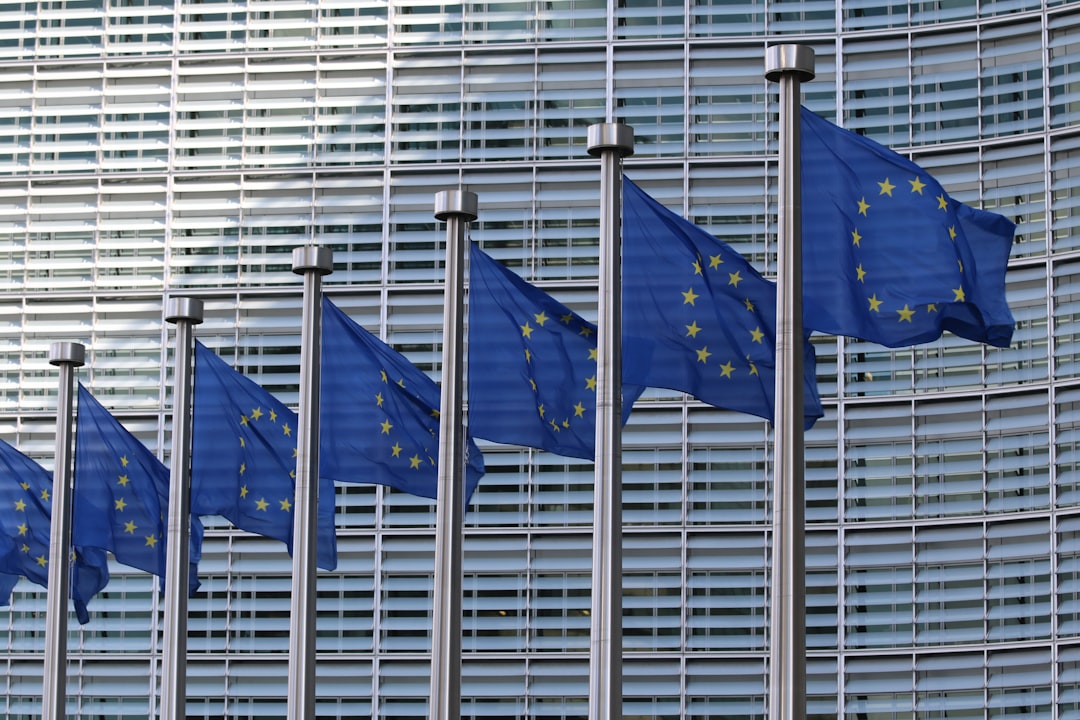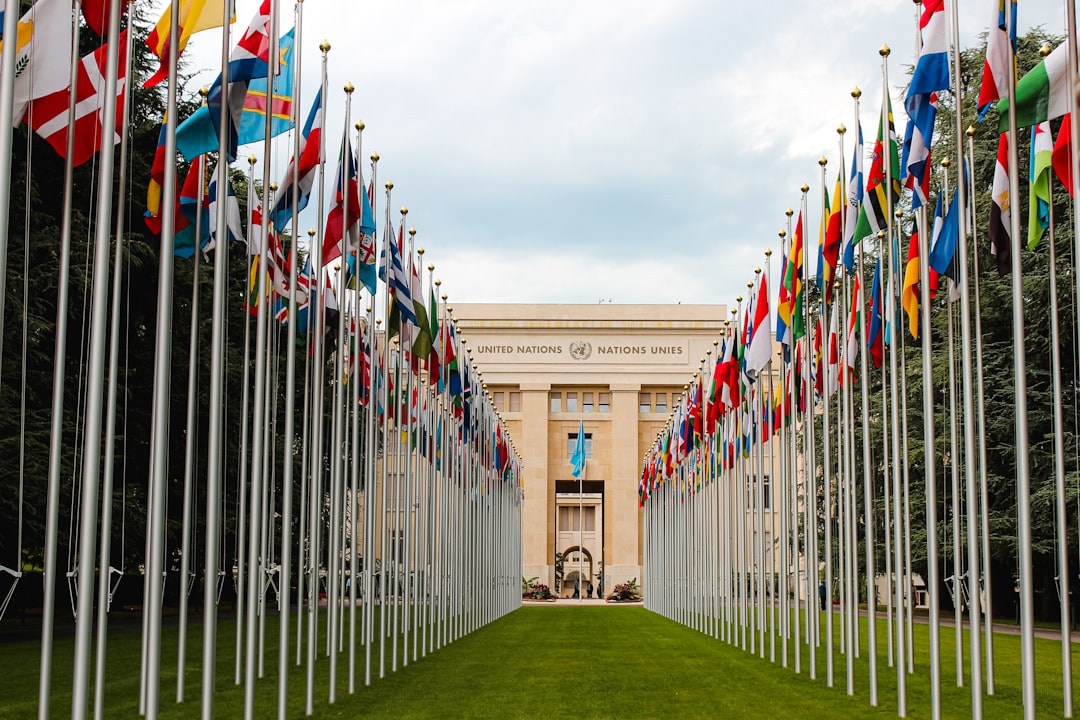Why Liz Truss Went From Elected to Ejected So Quick ?
The Eroding Sovereignty of Nation-States by Global Phenomena and Structures
Note : this article is the 13th in a series on the disruption of nation-states by the Internet.
Here are the fourteen articles in the series:
How the Internet makes Governments Impotent to Tackle Bottlenecks
How cryptocurrencies are disrupting Nation-States, part 1 of 2
How cryptocurrencies are disrupting Nation-States, part 2 of 2
Digital Shadows: How the Internet Empowers Anonymity and Challenges Governments
How the Internet prevents governments from enforcing their laws
Where it hurts most: how the Internet makes it harder for governments to collect taxes
The Web of Fraud: How the Internet Exposes Nation-States' Weaknesses
September 5, 2022. After 7 weeks of intense debate, Liz Truss is elected leader of the Conservative Party, to replace Boris Johnson, who resigned after too many scandals tainted his position as Prime Minister.
She was immediately appointed British Prime Minister by Queen Elizabeth II (just 3 days before her death).
It was the fruit of a perfectly honed democratic process in the UK, and Liz Truss was eager to get to work implementing her program.
This photo was taken the day after she won her party's election and became Prime Minister:
And yet, 49 days later, Liz Truss resigned, ending the shortest premiership in British history, but not before earning the worst approval ratings for a prime minister in UK history1.
And the worst part? Liz Truss has been forced to resign by forces absolutely external to 1) the British democratic process and 2) the UK itself.
How is this possible?
That's what we're going to examine in this article, along with other examples of nation-states losing power to phenomena beyond their control or above them.
Economic globalization as a counterweight to the State
Even in the days of monarchies, kings often had to borrow from various bankers to finance their projects, and could find themselves somewhat constrained by the need to repay them.
But they did, of course, have the option of seizing the bankers' assets and/or having them thrown into prison, if need be, as King Philip the Fair did when he had the Templars condemned as heretics - which enabled him, quite practically, to confiscate their assets, and of course wipe out the colossal debts he owed them .

Today, nation-states no longer have this direct option at their disposal (although slightly more "subtle" means, such as nationalizing banks, are still used by some countries ), and multinational corporations and global financial markets often influence national policies and the daily lives of citizens, which can weaken the state's control over its economy and therefore its ability to shape national identity.
The phenomenon that forced Liz Truss to resign
Which brings us to the story of Lizz Struss.
Following numerous scandals in 2021 and 2022, Boris Johnson was forced to resign, and it was his former foreign minister Liz Truss who was elected by the Conservative party to take his place, on promises of massive tax cuts and free market policies to boost the economy in the long term .
A few days later, Chancellor of the Exchequer Kwasi Kwarteng (a minister) put Liz Truss's promises into practice and announced a "mini-budget" that included, among other things, massive tax cuts for individuals and companies.
The announcement of these tax cuts was immediately followed by a sharp fall in the value of the pound sterling against the US dollar, as world markets reacted negatively to the fact that Britain would have to borrow massively to cover its expenditure, at a time when the country was already 101% of GDP in debt, and had to fight high inflation and therefore increase interest - and the cost of this debt.
The very next day, the pound hit an all-time low against the dollar, and the mini-budget drew fierce criticism from economists, some fearing that its reliance on increased government borrowing to finance the biggest tax cuts in 50 years would lead to a situation similar to the 1976 crisis.
Unusually, the International Monetary Fund criticized the UK's plans, and ratings agency Moody's also expressed concern, calling the plans "credit negative", and downgraded the UK's economic outlook to "negative", citing increased risks to the country's debt repayment capacity and unpredictable policy in the face of low growth and high inflation.
Despite market turbulence and various calls for a political U-turn, Liz Truss and Kwarteng maintained their proposals.
But investors began to worry about the British government's ability to repay its debts, and started selling their bonds, significantly increasing the number of securities on sale without the same increase in the number of buyers, which drove prices down and interest rates up, thus further increasing the potential cost of British debt.
British pension funds (which manage the pensions of British people) use special financial tools to try to manage the risks associated with changes in interest rates, but when bond prices fell sharply, they had to find extra money.
This led to even more bonds being sold at knock-down prices, driving their prices even lower, and risking a default by these pension funds, some of which were very close to running out of money altogether.
The Bank of England was then forced to intervene by buying British bonds on a massive scale to boost prices, spending £5 billion in the space of a few days.

This was too much: Minister Kwasi Kwarteng was sacked, but it wasn't enough, and Liz Truss had to resign, just 49 days after appointing 1st minister.
Her entire economic plan was scrapped, and the financial markets regained confidence.
If you find some aspects of this story, which delves into the financial arcana of running a country, a little complicated, that's perfectly normal: the main point is that a British Prime Minister - and a large part of her government - was forced to resign, even though she had been democratically elected by her party on the basis of a clearly announced program, but the financial markets decided otherwise, making Britain economically unmanageable.
So politicians are no longer just accountable to their people and voters: they also have to convince the markets, which are much more demanding... and that's only to be expected, given that we're talking here about people who actually invest their money, or the money entrusted to them, in a country.
And it should be noted that the massive indebtedness of most Western countries, and their financial mismanagement, which we'll discuss in more detail in the next chapter, makes them all the more fragile because they are more dependent on their creditors.
And this clearly shows the loss of power of nation-states in the face of a globalized phenomenon, made even more massive and instantaneous by the Internet: anyone can easily buy government bonds via a broker or even certain banks on the Internet, and follow financial news in real time, regardless of where they live, and can sell all their bonds at lightning speed, making the risks of contagion, which can be veritable tsunamis in the age of social media, particularly dangerous.
Supranational organizations
Beyond this phenomenon, States are increasingly obliged to cede part of their powers to supranational bodies, perceived, rightly or wrongly, as more likely to manage the problems of the 21th century, such as :
The European Union

EU member countries accept a reduction in their autonomy, by accepting that certain European rights take precedence over national rights.
In particular, member states may not pass national laws that run counter to the 4 fundamental freedoms of the common market:
The free movement of goods
The free movement of capital
The freedom of establishment and provision of services
The free movement of persons
These 4 fundamental freedoms take power away from EU member states in a thousand and one different ways.
To give you a slightly zany example, in a 2009 case2 , the European Court of Justice ruled that an Italian law prohibiting motorcycles and mopeds from towing trailers infringed the principle of free movement of goods.
Because, although the Italian law applied neutrally to everyone, it disproportionately affected importers from other European countries, since Italian companies didn't manufacture trailers.
The Court found that the ban would deter people from buying trailers: it would have "a considerable influence on consumer behavior" which "affects access to the market for this product".
To give you a slightly more serious example of just how significant the loss of national power can be, in another case3 , the European Court of Justice ruled that a British company operating in Denmark could not be required to comply with Danish rules on minimum share capital.British law only required a capital of one pound sterling to set up a company, whereas Danish law required a minimum of 200,000 Danish kroner (around 27,000 euros) to protect creditors in the event of the company's bankruptcy or insolvency.
The Court of Justice held that the Danish law infringed the UK company's freedom of establishment and could not be justified, because a UK company could provide services in Denmark without being established there, and there were less restrictive means of achieving the objective of creditor protection.
As we shall see in the future articles (and the book), these fundamental freedoms can also considerably curb attempts by EU member states to restrict the physical and fiscal mobility of their citizens.
Member countries accept these restrictions for a variety of reasons, including :
Ensuring peace on a continent ravaged by two devastating wars in the 20th century
Stimulate economic growth with a barrier-free internal market
Greater influence on a global scale: in the age of giants like China, India and the USA, even the most powerful individual European countries can find it hard to make their voices heard.
When the European Union speaks with one voice (which doesn't always happen), it represents 448 million people (making it the 3rd most populous country after China and India) and a GDP equivalent to the 3rd world economic power (after the USA and China).
OECD (Organization for Economic Cooperation and Development)
The OECD is an international organization founded in 1948 under a different name, in particular to help the United States implement its post-war reconstruction aid plan, known as the Marshall Plan, among European countries.
It provides a platform for governments to compare policies, seek answers to common problems, identify best practices and coordinate national and international policies.
The organization sets international standards and regulations in areas such as taxation, corporate governance and the environment.
Membership of the OECD obliges member states to adhere to certain standards and rules, thus limiting their autonomy in terms of economic policy.
As we will see in future articles, and as we briefly touched on in “A Tax on your Nationality : can your country pull it off ?”, the OECD began to play a major role in the tax policies of its member countries from the 2010s onwards, which can sometimes lead to strong reactions from politicians in the countries concerned.
For example, following the agreement on the 15% minimum tax on large multinationals that the Biden administration signed in 2021, the Republican party railed against what it saw as a way for the executive to encroach on a right reserved to the US Congress by the constitution4 .
It should be noted that, despite the significant powers they have to determine certain aspects of a country's tax policy, none of the OECD's employees are elected by the people.
THE UN

I don't need to introduce this well-known institution. Membership of the UN implies acceptance of its charters and principles, which can limit the sovereignty of member states in certain situations, particularly when it comes to issues of peace and security.
As we shall see later, it would also like to play a major role in international tax policies.
The World Trade Organization (WTO)
The WTO is an international organization that oversees and facilitates international trade between nations. It provides a framework for negotiating trade agreements and a dispute settlement mechanism. WTO members are bound by the trade agreements they have signed, which can limit their ability to implement unilateral trade policies. The WTO can impose sanctions on countries that fail to comply with the rules, which can have significant economic repercussions.
In conclusion
Nation-states are increasingly constrained by supranational bodies, whether informal, like the international financial markets, or formal, like the EU or the OECD, and are seeing their powers and prerogatives eroded year by year, even for the mighty US state.
This, of course, has many beneficial effects, such as reducing conflict and facilitating trade, which increases prosperity for all mankind.
But it should be noted that these organizations are, for the most part, not democratically elected by the peoples over whom they have influence, with the exception of the European Union, whose democratic mechanisms are nevertheless limited and often criticized5.
And we can ask ourselves: are nation-states still a relevant political unit in this globalized world, with its fast and cheap means of transport, even as the Internet is transforming the world into one big village?
It seems that at the very moment when all the disruptions we've been talking about are attacking nation-states, the very legitimacy of the political entity they represent is being absorbed by supranational entities that are playing an increasingly important role.
How will these interactions play out? We'll explore this in future articles.
The series on the disruption of nation-states by the Internet
This article is the 13th in a series on the disruption of nation-states by the Internet.
Here are the first twelve articles in the series:
“Liz Truss resigns as PM and triggers fresh leadership election”, The Guardian, 2022
"Is a Pillar Two Trade War Inevitable?", Alex M. Parker, Things of Caesar
“The Democratic Deficit of the European Union”, Thomas Jensen, 2009







